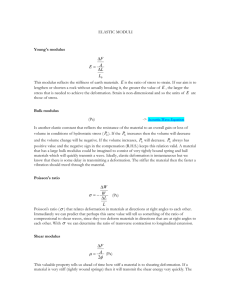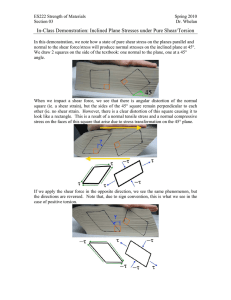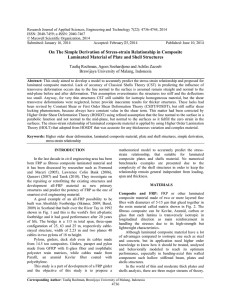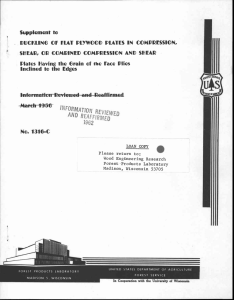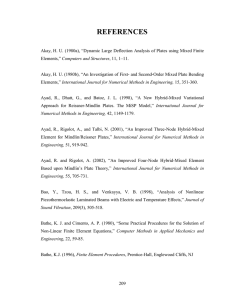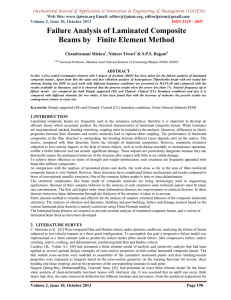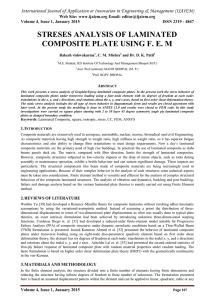Development of a Finite Element Program for Thick Anisotropic
advertisement
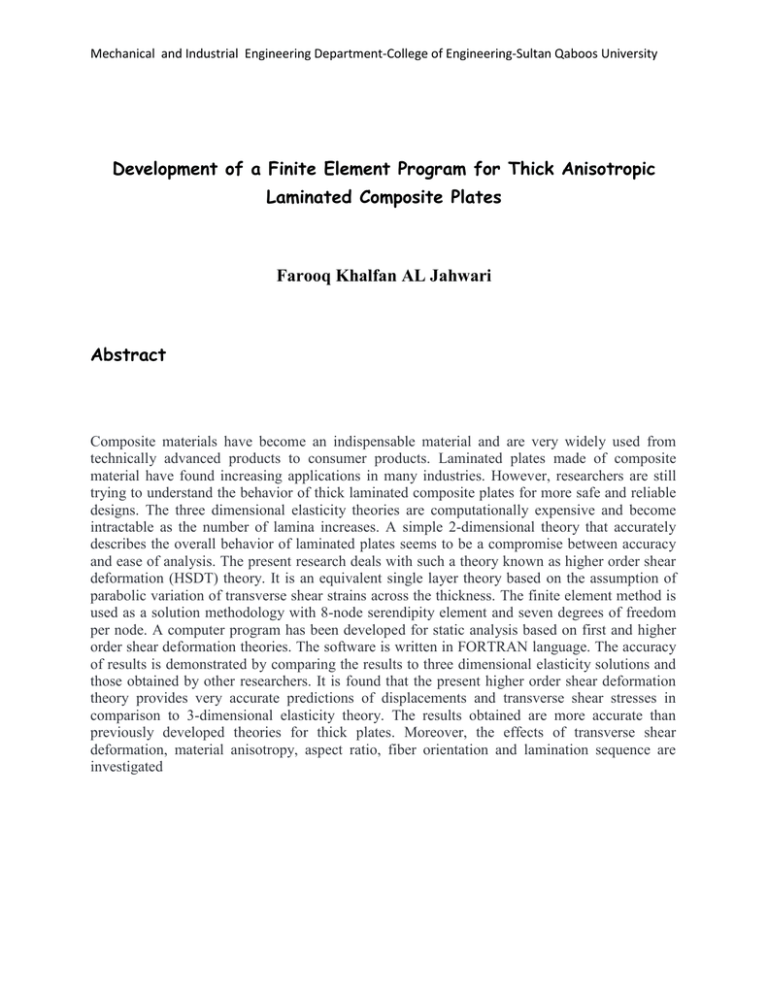
Mechanical and Industrial Engineering Department-College of Engineering-Sultan Qaboos University Development of a Finite Element Program for Thick Anisotropic Laminated Composite Plates Farooq Khalfan AL Jahwari Abstract Composite materials have become an indispensable material and are very widely used from technically advanced products to consumer products. Laminated plates made of composite material have found increasing applications in many industries. However, researchers are still trying to understand the behavior of thick laminated composite plates for more safe and reliable designs. The three dimensional elasticity theories are computationally expensive and become intractable as the number of lamina increases. A simple 2-dimensional theory that accurately describes the overall behavior of laminated plates seems to be a compromise between accuracy and ease of analysis. The present research deals with such a theory known as higher order shear deformation (HSDT) theory. It is an equivalent single layer theory based on the assumption of parabolic variation of transverse shear strains across the thickness. The finite element method is used as a solution methodology with 8-node serendipity element and seven degrees of freedom per node. A computer program has been developed for static analysis based on first and higher order shear deformation theories. The software is written in FORTRAN language. The accuracy of results is demonstrated by comparing the results to three dimensional elasticity solutions and those obtained by other researchers. It is found that the present higher order shear deformation theory provides very accurate predictions of displacements and transverse shear stresses in comparison to 3-dimensional elasticity theory. The results obtained are more accurate than previously developed theories for thick plates. Moreover, the effects of transverse shear deformation, material anisotropy, aspect ratio, fiber orientation and lamination sequence are investigated
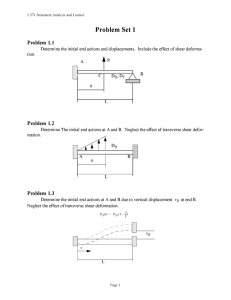
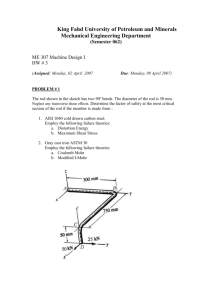
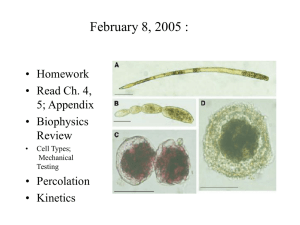
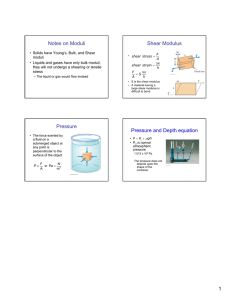
![List of changes: 1- Page2: reference “[22]” is added to the end of this](http://s3.studylib.net/store/data/007188902_1-dc3ffc6bfa98d4af9207cb70e1033027-300x300.png)
